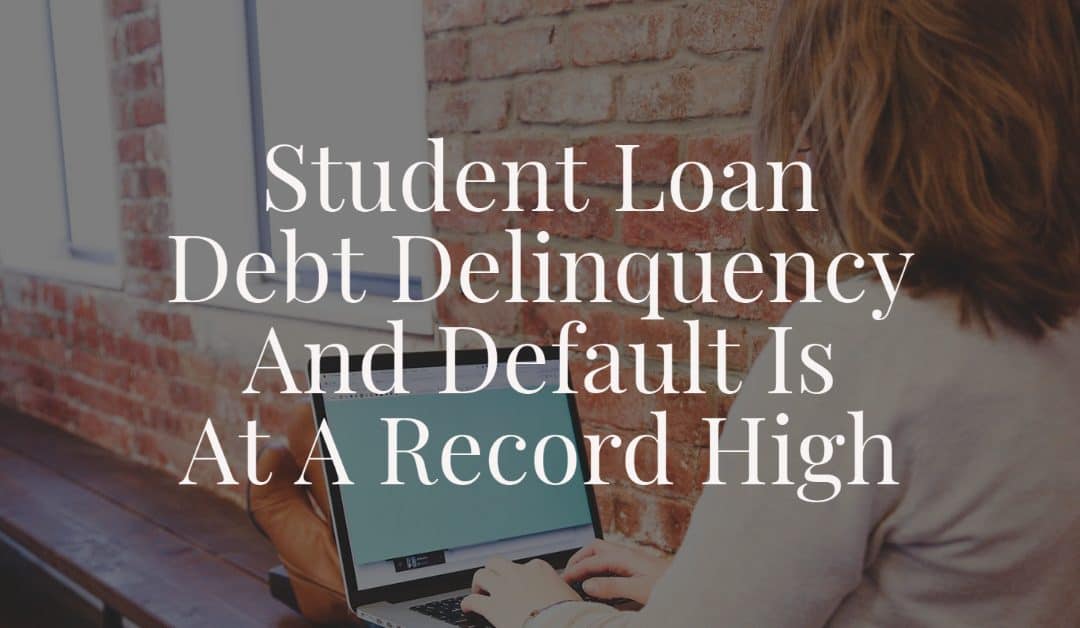You are not alone if you are facing student loan struggles and Law Zebra may be able to help
The #1 phrase searched on the internet related to student loans is “Student Loan Forbearance.”
This is not a coincidence. According to the U.S. Federal Reserve, there is $1.64 trillion in U.S. Student Loan Debt (yes, we said TRILLION). That financial burden is distributed amount 44.7 million Americans and 11.1% of student loans are 90 days or more delinquent or in default.
(Data via the U.S. Federal Reserve here, and the Federal Reserve Bank of New York here.)
These statistics were all before the country was hit with a national pandemic. These numbers are only going to get worse as the country faces record unemployment rates and COVID related medical debt increases (Please click Here for our blog article “Consumer Advice for COVID-19” and Here for a video on “Medical Debt” basics.)
Therefore, it should be no surprise that people are searching the internet for some type of forbearance, some form of reprieve from this burden.
If you take away only one thing from this blog series, take away the fact that you are not alone if you are reading this because you’re buried under student loan financial obligations. While it is true, the student loan lenders hold the power when it comes to agreeing to grant a reprieve or forbearance, you still have some options. Student Loan debt collectors are still required to comply with federal and state debt collection laws and are still required to meet their burden of proving the debt is owed and the amount it alleges is owed is accurate. Click Here for an overview of our blog which contains a great deal of articles regarding limitations the law has placed on debt collectors.
Law Zebra is a place where you can reach out to an attorney to discuss your options regarding your debt (including student loan, credit card, and medical debt) without ever worrying about any judgment and without any financial shame. Our dedicated attorneys are here to help. If you believe your student loan payments are not being properlycredited to your outstanding balance or that you are being harassed by a debt collector, contact us today.
A Win for Consumers: United States Supreme Court (“SCOTUS”) orders collectors of government-owned debts to stop robocalling.
It is a violation of federal law for debt collectors to use robocalling equipment to contact consumers’ cell phones in an attempt to collect a debt. (Please click Here for our article “How to Fight Debt Collection Harassment” and Here for our article “Robocall Lawsuit” to learn more).
In 2015 however, a revision was passed which allowed an exception for government-owned debt (your federal back student loans for example). As of this 2015 exception, debt collectors were allowed to use robocalling equipment when attempting to collect government-owned debts.
The constitutionality of this carve out exception was recently heard by the United States Supreme Court in the case of Barr v. American Association of Political Consultants. In a 6-3 ruling released on July 6, 2020, SCOTUS held that debt collectors cannot contact consumers by robocalling their cell phones when attempting to collect on government-owned debts. SCOTUS determined that the 2015 exception is unconstitutional.
A noteworthy quote from the decision comes from Justice Kavanaugh stating: “Americans passionately disagree about many things. But they are largely united in their disdain for robocalls.”
If you think you are receiving collection calls from robocalling equipment regarding your government back student loans, please contact us at Law Zebra to discuss your options on how to respond. As always, Law Zebra is here to help consumers, please reach out if you are being harassed by a debt collector or if you suspect a debt collector is violating any of the legal limitations the law has placed on debt collectors as discussed in our blog article.
The CARES Act requires garnishment for all government-owned federal loans to STOP.
Congress is aware of the financial struggles that Americans are having as the country faces a national COVID pandemic and many are out of work. The CARES Act (the short name for the Coronavirus Aid, Relief, and Economic Security Act) was introduced in the House in January, 2019, it passed the House and Senate and was signed into law by President Trump on March 27, 2019.
The CARES Act suspended all garnishments and tax refund interception related to federal student loans through September 30, 2020 and was retroactive to March 13, 2020.
In May, 2020, a class action lawsuit was filed against Betsy Devos and the Department of Education because despite the CARES Act, the Department of Education was still garnishing wages for federal student loan debt. As of July, 2020, the Department of Education is reporting to the court that the wage garnishments continue! Approximately 4,300 student loan borrowers are still having their wages garnished.
The Department of Education claims it is working on getting garnishments returned to student loan borrows but has transferred the burden to employers. The argument by the government is that notices of garnishment are still being processed and sent out to employers but the government then notifies employers via phone that they are not supposed to actually comply with the garnishment notices received.
It remains unknown as to whether this is an intentional act by the Department of Education to continue collecting money from hard working Americans or if it’s merely a reflection that the government is simply too big to change direction when ordered to change its ways. Either way, if your wages were garnished between March 13, 2020 and September 20, 2020 due to a government-owned federal student loan and those funds have not been returned to you, please reach out to Law Zebra to discuss legal options that may be available to you.
Follow this blog and LawZebra.com on Facebook for updates on student loan debt and your options of having the debt reduced or forgiven.

